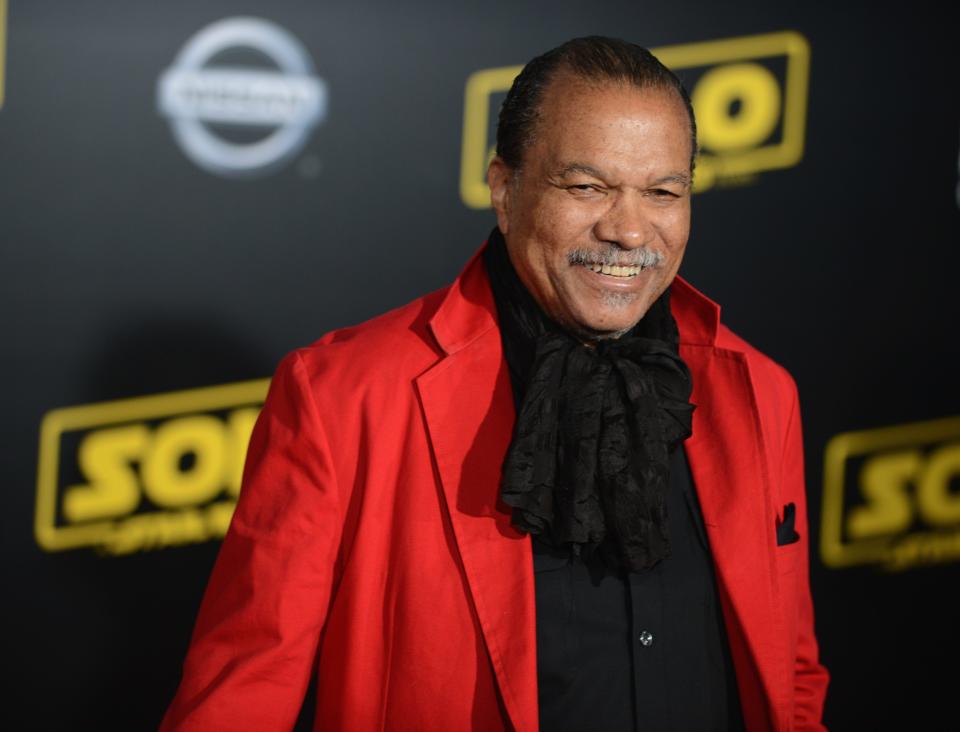Billy Dee Williams thinks it's fine for actors to wear blackface: 'Why not?'
- Oops!Something went wrong.Please try again later.
Billy Dee Williams just shocked Bill Maher with a surprising take on blackface.
In a conversation on Maher's "Club Random" podcast, the "Empire Strikes Back" star, 87, argued actors should be able to wear blackface for roles.
The comments came during a discussion about Laurence Olivier, who infamously wore blackface to play the title role in the 1965 film "Othello." This sparked criticism at the time and is widely considered unacceptable today given the history of blackface being used to mock caricatures of African Americans in minstrel shows.

So after Williams spoke glowingly about Olivier's performance and said he "loved it," Maher told the Lando Calrissian actor, "Today, they would never let you do that."
"Why?" Williams replied, to which a stunned Maher asked, "Blackface?" Doubling down, Williams told the "Real Time" host, "Why not? You should do it! If you're an actor, you should do anything you want to do."
"That's a great point of view," Maher said, "but the theater would be bombed."
USA TODAY has reached out to representatives for Williams for comment.
According to the National Museum of African American History and Culture, the use of blackface in the United States dates back to the first minstrel shows in the 1800s, in which white performers darkened their faces and characterized Black people "as lazy, ignorant, superstitious, hypersexual, and prone to thievery and cowardice."
"By distorting the features and culture of African Americans — including their looks, language, dance, deportment, and character — white Americans were able to codify whiteness across class and geopolitical lines as its antithesis," the museum explains.
'I'm just like a kid': Billy Dee Williams chronicles his 'full life' in new memoir
Williams' comments come after Richard Dreyfuss sparked backlash last year by similarly arguing actors should be able to perform in blackface. Speaking to PBS' "Firing Line with Margaret Hoover," the "Jaws" star said Olivier played Othello "brilliantly" in blackface and suggested he should be able to do so as a white man today.
"Am I being told that I will never have a chance to play a Black man?" Dreyfuss asked.
In a 1966 review for The New York Times, Bosley Crowther objected to Olivier's "outrageous impression of a theatrical Negro stereotype" in "Othello," writing that this choice "impels the sensitive American viewer into a baffled and discomfited attitude." Still, Olivier received an Oscar nomination for the role. In 2021, a professor stepped back from a class at the University of Michigan after sparking backlash for showing the film, according to The New York Times.
Robert Downey Jr. reflects on blackface for 'Tropic Thunder': 'I know where my heart was'
One modern example of an actor wearing blackface is Robert Downey Jr. in "Tropic Thunder." In the 2008 comedy, the "Iron Man" star played an actor who darkens his skin for a role. But on "The Joe Rogan Experience" in 2020, Downey said the Ben Stiller film was "about how wrong that is."
"Ben, who is a masterful artist and director ... knew exactly what the vision for this was, he executed it, it was impossible to not have it be an offensive nightmare of a movie," Downey also said. "And 90% of my Black friends were like, ‘Dude, that was great.'"
Contributing: Rasha Ali, USA TODAY
This article originally appeared on USA TODAY: Billy Dee Williams defends blackface, says actors should do it

